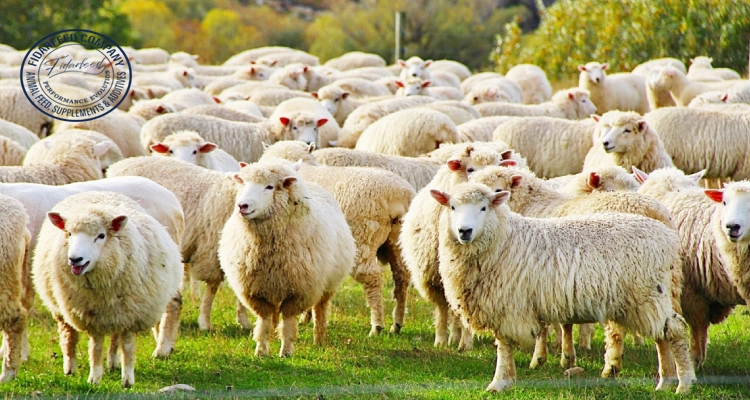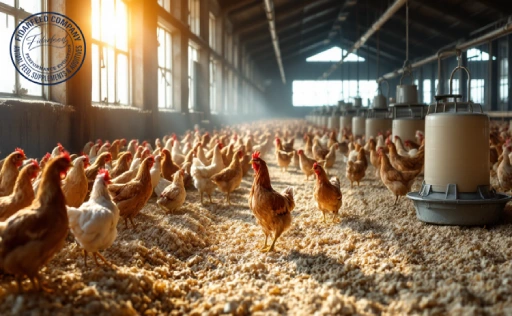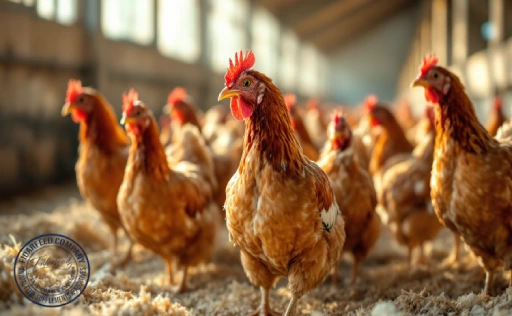
How to Run a Successful Sheep Farm starts with understanding that it takes more than just land and livestock. It requires dedication, knowledge, patience, and a clear plan to achieve both profitability and sustainability. Whether you are just getting started or looking to level up your existing operation, this guide will walk you through everything you need to know to build a thriving sheep farm. Ready to get your boots muddy? Let’s dive in.
What Does It Really Mean to Run a Successful Sheep Farm?
Success in sheep farming goes beyond how many animals you own. It means managing your flock efficiently, ensuring high animal welfare, turning a healthy profit, and doing it all in a sustainable way.
Learn more about: Active Probiotic Yeast for Large animal
A successful sheep farm strikes a balance between good husbandry, smart business decisions, and long-term vision. You’re not just raising sheep—you’re managing a living, breathing enterprise.
How to Run a Successful Sheep Farm by Choosing the Right Breed
Not all sheep are created equal. Some breeds excel in wool production (like Merinos), others are great for meat (like Suffolks), and a few do well in dairy operations (like East Friesians).
Learn more about: The Essential Guide: How Do Sheep Help Farmers?
Consider your climate, market demand, and available resources. For example, Dorper sheep are ideal for hot, dry climates and require less wool shearing. Selecting the right breed ensures better productivity and fewer management headaches down the line.

Sheep Farm Setup Guide: Land, Fencing, and Shelter for Success
Before you welcome your flock, make sure the farm setup is ready. You’ll need strong, secure fencing to keep predators out and sheep in. Rotational grazing works best on divided pastures.
Learn more about: The Complete Guide to Sheep Farming for Beginners
Provide shelters to protect your animals from extreme weather. Simple structures like three-sided sheds can offer sufficient protection. Water access and shaded areas are also critical to avoid stress, especially during the summer.
Nutrition Matters: Feeding Strategies for Healthy Sheep
Sheep need a balanced diet for optimal growth, reproduction, and wool production. Good-quality pasture should be the foundation. Supplement with hay during lean seasons, and provide mineral blocks rich in selenium, copper (in safe amounts), and calcium.
Learn more about: How to Control Internal Parasites in Sheep: Best Practices
Pregnant ewes need extra energy and protein, so tailor their feed accordingly. Don’t forget fresh water—hydration plays a huge role in digestion and nutrient absorption.

Managing Sheep Health: Prevention Is Better Than Cure
Healthy sheep are productive sheep. Implement a strict vaccination schedule against common diseases like clostridial infections, foot rot, and parasites.
Learn more about: How to Treat Ringworm in Sheep and Lambs: A Complete Guide
Regular deworming is essential, but use fecal tests to avoid overuse of anthelmintics. Observe your sheep daily for signs of illness: lethargy, isolation, or changes in appetite can be early warning signals. Build a relationship with a local veterinarian—they’re your best ally.
Reproduction and Lambing: Tips for a Successful Breeding Season
Breeding season can make or break your profitability. Use healthy, proven rams and aim for optimal body condition in ewes before mating. The average gestation period is about 147 days. During lambing, prepare clean pens, fresh bedding, and colostrum for newborns.
Learn more about: Dorper Sheep Farming: Producing High-Quality Meat for Maximum Profit
Assist only when necessary, and monitor closely for complications. Good record-keeping of birth weights and parentage improves your selection process over time.

Grazing Management: Make the Most of Your Pasture
Overgrazed land leads to poor nutrition and increased parasite load. Practice rotational grazing by dividing pastures and allowing rest periods for regrowth.
Learn more about: Solving Rumen Health Problems in Sheep with Probiotics
Introduce legumes like clover to improve soil fertility naturally. Water trough placement and herd movement should encourage even grazing. Smart grazing keeps your land fertile and your flock healthy.
Record-Keeping for Better Decisions and Higher Profits
Successful sheep farmers are also good data managers. Track everything: birth dates, breeding history, weight gain, health treatments, feed costs, and sales. Digital tools or simple spreadsheets can do wonders. These records help you identify trends, eliminate inefficiencies, and make better breeding and marketing decisions. What gets measured gets managed.

Common Mistakes New Sheep Farmers Make (And How to Avoid Them)
Many beginners underestimate the workload or overstock their land. Others skip routine health checks or fail to market their products effectively. Avoid these pitfalls by starting small, seeking mentorship, and continually educating yourself.
Learn more about: Solving Rumen Health Problems in Sheep with Probiotics
There’s no shame in learning through trial and error—just make sure you actually learn from it.
Marketing and Sales Strategies to Make Your Sheep Farm Successful
Good farming isn’t enough—you need to sell smart too. Whether it’s wool, lamb meat, or live animals, identify your target market early. Local farmers’ markets, butcher shops, and restaurants can be excellent outlets. Build a brand that highlights your farm’s values (e.g., organic, grass-fed, humane practices). Don’t underestimate the power of social media in creating loyal customers.

Scaling Your Operation: How to Run a Bigger and Better Sheep Farm
Growth is great—but only when it’s controlled. Expand your flock based on available resources and market demand. Invest in better equipment, refine your feeding program, or add value through farm tours or educational workshops.
Learn more about: The Ultimate Guide to Sheep Farming Equipment
Sustainable growth means increasing productivity without exhausting your land or yourself.
Final Thoughts on How to Run a Successful Sheep Farm for the Long Haul
Sheep farming can be deeply rewarding when done right. With careful planning, commitment to animal welfare, and a solid business approach, you can build something that lasts for generations. Keep learning, stay adaptable, and surround yourself with a community of fellow farmers. If you’ve got questions or thoughts, drop them in the comments below—we’d love to hear from you.
Thanks for reading The Complete Guide: How to Run a Successful Sheep Farm. Your journey toward a thriving and profitable sheep operation starts here. Now, go make it happen!



